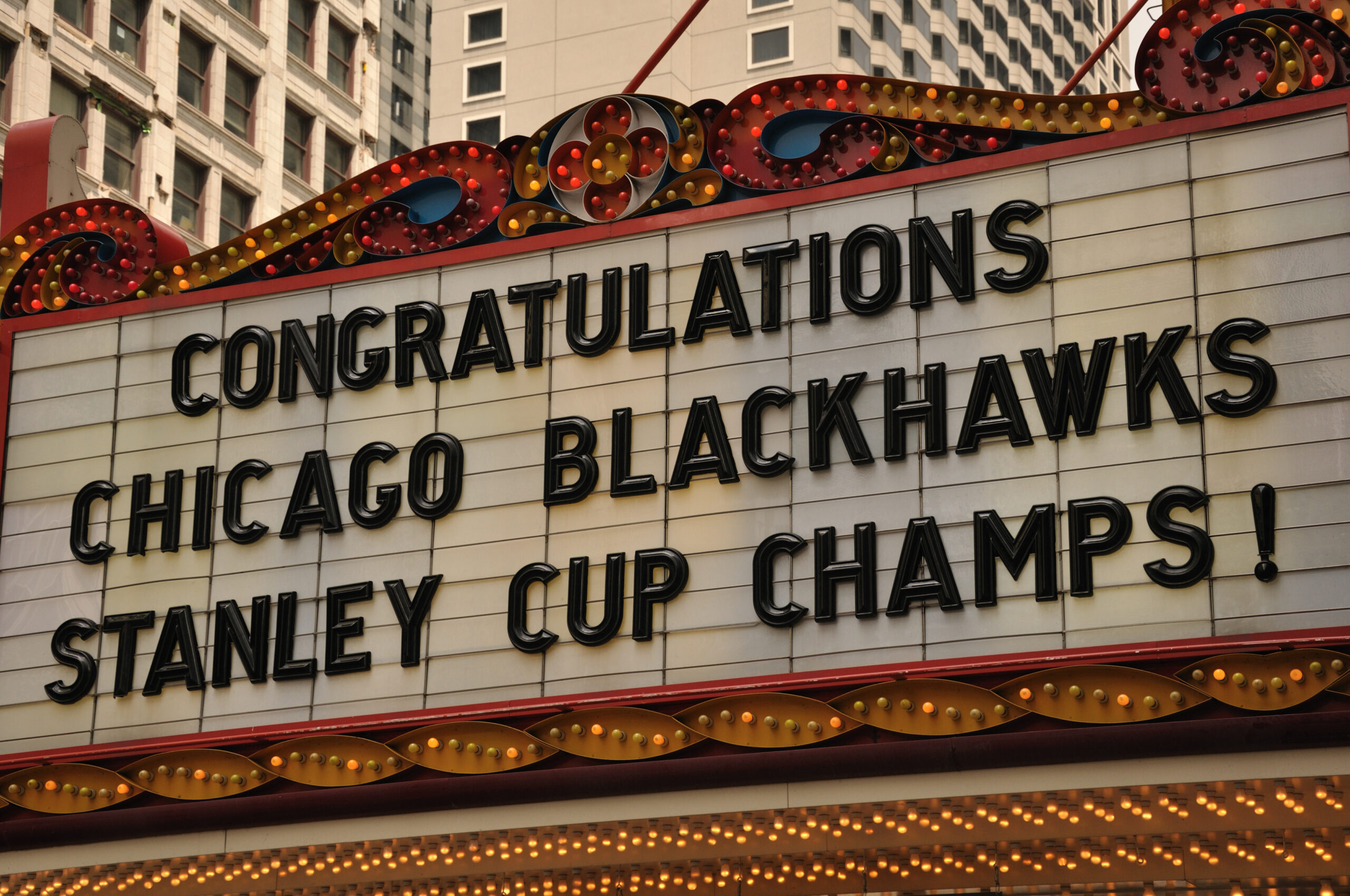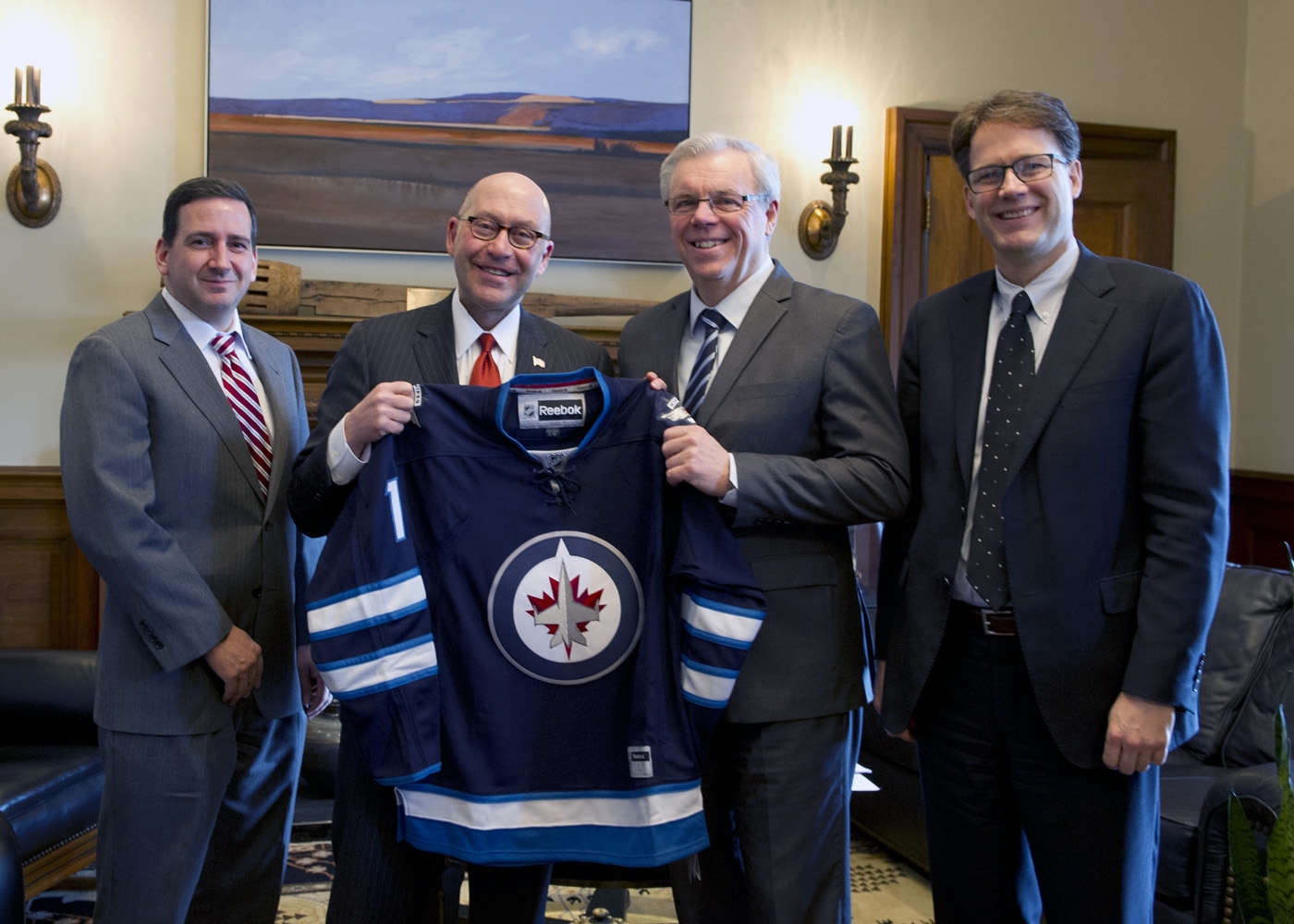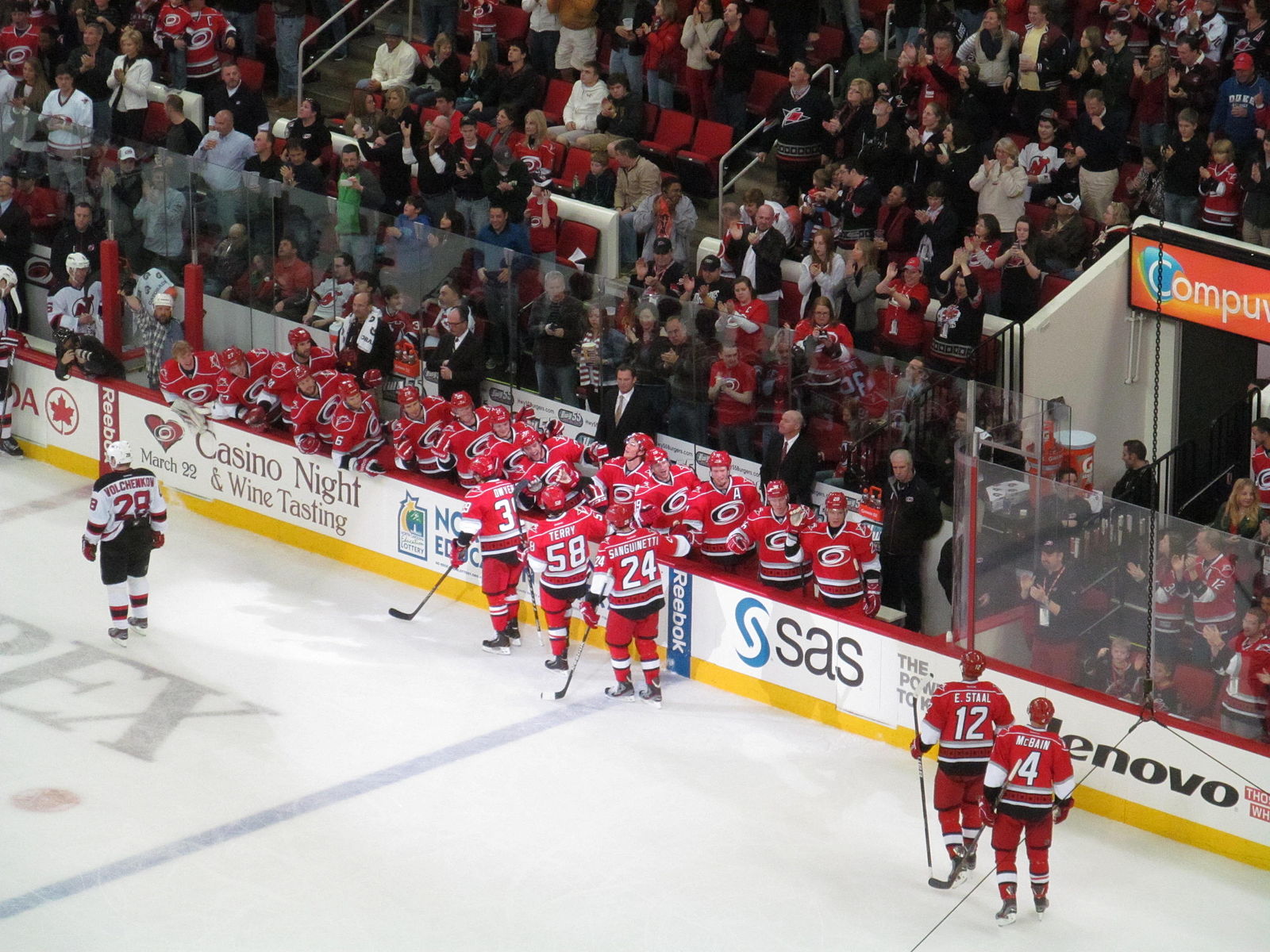It’s that time of the month when we take a look at what’s been happening in hockey’s business and legal world. Twice a month we cover the big and not so big stories in this arena. We also include a featured story of the period. Let’s take a look at what has been happening this period.
Hockey’s Business and Legal News
Mike Babcock Out as Columbus Blue Jackets Coach
As we discussed in more detail in last period’s hockey’s legal and business updates, Mike Babcock ran into trouble with the Columbus Blue Jackets after reports surfaced that he was looking at players’ phones and specifically photos and personal information. While it at first seemed like a routine thing that Babcock had been doing in past coaching stints, further evidence surfaced that there were incidents that caused many players to be very uncomfortable. After an investigation into it by the NHLPA, Babcock “resigned” from the head coaching position with the Blue Jackets. The question here could be, what is too far for a coach when it comes to players’ privacy? Even if there is not a specific “don’t look at players’ phones rule”, this is clearly a no-no. But coaches at any level need to use this as a lesson. Treat players with respect and expect it in return.
Sources say #CBJ and Mike Babcock are indeed parting ways.
— Frank Seravalli (@frank_seravalli) September 17, 2023
Investigation by #NHLPA left no path for Babcock to continue as coach. Much of last 24-48 hours was spent negotiating his exit.
Strong message sent: Treat all players with respect, as you would in any proper workplace.
Hazing Issues at Bowling Green
Bowling Green University appears to be the next NCAA program facing hazing-related issues. Following allegations of an off-campus hazing incident, Bowling Green announced it has suspended three players on the men’s hockey team and put head coach Ty Eigner on administrative leave. The University is investigating the incident. Nothing has been proven as certain yet so stay tuned for more on this. But once again, the hazing and abuse incidents seem to keep piling up and with that comes tighter scrutiny on the specifics of the programs. Not only do coaches need to pay attention to this but parents and players as well. See what programs have proven to operate ethically and have policies in place addressing such incidents. Also look to see the NCAA, specific college programs and other institutions continue to evolve their policies and programs due to these issues.
Big news here. In response to report of alleged off-campus hazing incident, Bowling Green State University preparing to announce that three hockey players have been suspended and coach Ty Eigner has been placed on administrative leave. Investigation ongoing.
— Dave Briggs (@DBriggsBlade) September 18, 2023
Ottawa Senators Sale Passes the Finish Line
As we have discussed in detail in previous hockey’s business and legal updates articles and covered in our three-part article on buying and selling an NHL team, the NHL Board of Governors has to approve the sale of every NHL team. The latest NHL sale – the Ottawa Senators to Michael Andlauer and his consortium. On September 21, 2023, the Board approved this sale, and the transaction is now considered closed. Andlauer is now the owner. It takes a lot of steps to buy and sale an NHL team. While there were not really any foreseeable issues in the Senators sale, all involved are certainly happy to see it close.
NHL’s Board of Governors approves sale of Ottawa Senators. https://t.co/bv0Z7Lrdzb pic.twitter.com/yL5TZ2vMFA
— NHL Public Relations (@PR_NHL) September 21, 2023
Canadian Revenue Agency Reviewing Allegations of Corruption in the Greater Toronto Hockey League
The Greater Toronto Hockey League (GTHL) is the largest minor hockey league in the world. Following a story covering a questionable sale of a GTHL team in April of 2023, Akim Aliu filed complaints regarding the fraudulent buying and selling practices in the GTHL to the Canadian Revenue Agency (CRA) and the federal minister of sport. That story involved a prospective buyer who was “coached” on how to circumvent the GTHL’s prohibitions on certain sales of teams when he had a deal in place to purchase a team for $375,000. Specifically, the GTHL mandates that organizations cannot be bought or sold because they are registered as non-profits.
Now, the CRA is reviewing allegations that teams and organizations in the GTHL have been improperly bought and sold. Allegedly, these backdoor deals have been happening for some time now. While this may be a long investigation, the CRA is taking this seriously as it will look into tax filings and other corporate records of the GTHL and its teams. If found guilty there could be major consequences. Supposedly the GTHL has been running its own investigation into some of these questionable deals as well. It’s an unfortunate truth that corruption and deals like this happen at every level of the sport. The investigation is there to protect the public and the players in the GTHL even though it focuses on the tax ramifications. Expect more to come out on this as time passes.
New: The CRA is reviewing allegations that Greater Toronto Hockey League teams and organizations have been improperly bought and sold, following a complaint by former NHL player Akim Aliu.
— Rick Westhead (@rwesthead) September 25, 2023
Aliu: “The government are the only ones who can be trusted to make a real change, force the… https://t.co/MUe5E75nzU
WHL Suspends Wenatchee Wild Head Coach
The WHL announced that it has suspended Kevin Constantine, the head coach of the Wenatchee Wild, pending an independent investigation into alleged violations of WHL regulations and policies. Reportedly, the conduct Constantine allegedly is in trouble for involves his using of a racial slur. While the investigation is pending and the allegations are just that, Constantine must not have any conduct with any member or player of the team or organization. The WHL’s independent Player Advisory Council is conducting the investigation and will provide its findings to the WHL commissioner. The commissioner will then determine the appropriate action.
This is the Wild’s first season in the WHL. As we covered in a previous hockey’s business and legal updates article, the Wild are the newly created team coming from the sale and move of the Winnipeg Ice. While trouble is hitting the team early, it’s yet another example of a coach being pegged for questionable conduct. Much like Bill Peters. Again, nothing is certain yet, but it’s another lesson for coaches out there to watch their conduct and really consider how manage their players.
The Western Hockey League announced today, Kevin Constantine, Head Coach of the Wenatchee Wild, has been suspended pending an independent investigation into alleged violations of WHL Regulations and Policies.
— The WHL (@TheWHL) September 25, 2023
STATEMENT | https://t.co/aS4lL8H9Z4 pic.twitter.com/eKkJ5lITsD
Hockey Canada Updates its Non-Sanctioned League Policies
Hockey Canada made an update to its non-sanctioned league policies effective immediately as of September 26, 2023. The update includes that any player who participates in a non-sanctioned league after September 30, 2023, is ineligible to join, affiliate with or apply for reinstatement to any sanctioned hockey team that competes for a national championship for the remainder of the season. This includes teams in the CHL, Canadian Junior Hockey League and players looking for spots at Canada’s U18 National Club Championships. Non-sanctioned programs all operate without being recognized by Canada’s government and are not governed by the International Ice Hockey Federation.
This update follows Hockey Canada’s previous issuance of a document showing 20 benefits available to participants in Hockey Canada-sanctioned programs. Hockey Canada provides this rule update is to protect the players who chose to compete in a sanctioned program for a full season. However, it is possible that this update at least somewhat comes in response to the BCHL’s breakaway from Hockey Canada. We covered that in a previous hockey’s business and legal updates article.
The Non-Sanctioned Leagues Policy has been updated ahead of the 2023-24 eligibility cut-off date.
— Hockey Canada (@HockeyCanada) September 26, 2023
La politique relative aux ligues non sanctionnées a été modifiée en vue de la date limite d’admissibilité pour 2023-2024.
FRANÇAIS : https://t.co/lOQIhd7twO
The CHL May Sue Previous Players if Ordered to Pay Plaintiffs in Hazing and Abuse Lawsuit
In another ongoing story for the CHL and Hockey Canada, the CHL stated (again) in a court hearing that if they are ordered to pay the plaintiffs in their hazing and abuse lawsuit, the CHL will likely pursue legal action against former players that were perpetrators of such abuse. If you want a backstory on this lawsuit, you can check out our multi-part article here and follow our previous hockey’s business and legal updates.
This is a fairly normal course of action in these type cases. The victims go after the league due to its ultimate liability and deep pockets (via insurance most of the time). The league then turns to get payment from the actual perpetrators for their proportional liability in the matter. If that lawsuit moves forward, the original plaintiffs will no longer be involved. It will be a separate but related matter. However, it may be unlikely for the CHL to take this action. The abusers were teenagers at the time and would likely have joint liability with the coaches and team executives. Many of those coaches and executives are still heavily involved in hockey. Stay tuned on this.
Lawyers for the Canadian Hockey League and its leagues and teams reiterated in a court hearing this afternoon that if they are forced to pay money to survivors in connection with an abuse and hazing lawsuit, they may pursue legal claims against former players who were…
— Rick Westhead (@rwesthead) September 27, 2023
University of Michigan Defenseman Removed from Team for Violating Team Policies
The University of Michigan hockey team removed defenseman Johnny Druskinis from its roster after he violated team policies. While it was not initially released in the team report, the conduct involved Druskinis spray painting swastikas onto a Jewish Resource Center. The conduct was reportedly caught on camera. Druskinis is a depth defenseman for the Wolverines and his action is truly disappointing. You never know, but this may have been his highest level of hockey obtained and now it is gone. It is also possible that the Resource Center could pursue further criminal action as this is more than just violating team rules and even more than simple vandalism. One could argue this gets to the hate crime level.
One huge question though is what the team would have done if Druskinis was a star player? No one wants to make any unfair assumptions but unfortunately in the hockey world you see preferential treatment happen from time to time. That’s just hypothetical at this point. What’s not hypothetical is the simple fact that young hockey players need to use this as a lesson to remember that off-ice conduct can not only affect their on-ice careers but can have lasting effects on their lives.
#BREAKING: After violating team rules, sophomore defenseman Johnny Druskinis has been dismissed from @umichhockey.
— Michigan Daily Sports (@theblockm) September 29, 2023
More from @RekhaLeonard: https://t.co/W60M7FfdLh
Hockey’s Business and Legal Featured Story: Former CHL Players Seek to Terminate Minimum Wage Lawsuit Settlement Agreement
In 2014, former OHL, WHL and QMJHL players filed lawsuits against the three leagues and the CHL alleging that they should legally be considered employees and paid minimum wage. Then in 2020, those cases reached a settlement agreement. Since that lawsuit began, the Canadian provinces and U.S. States housing CHL teams enacted legislation prohibiting Canadian major junior players from specifically being considered employees. This means that further lawsuits like this would be fruitless unless legislation changes.
Now, a group of players are seeking to terminate that settlement agreement due to their unawareness of Hockey Canada’s slush funds of over $100 million. A pair of former QMJHL players are also seeking to fire their previous attorney related to the settlement agreement. The Superior Court of Quebec is allowing these individuals to present evidence showing why the settlement agreement should be discarded. Their attorney will have three weeks to do so. The lasting influence of this case might not be as big since legislation prevents future players from a similar action. Additionally, the settlement only applies to certain individuals. But this ongoing saga is another issue the CHL and Hockey Canada are facing. We previously wrote on this employment lawsuit and the settlement agreement. Stay tuned to see if the settlement agreement will hold.
After the CHL agreed to pay $30M to settle lawsuits filed by players seeking minimum wage, back pay and overtime, a group of players now want to blow up the agreement.
— Rick Westhead (@rwesthead) September 29, 2023
They say when they negotiated the settlement, they didn’t know Hockey Canada had amassed $100M+ in slush funds. https://t.co/5YoPaCDQ75
Post image attribution: By Letartean, CC BY 3.0 https://creativecommons.org/licenses/by/3.0, via Wikimedia Commons




